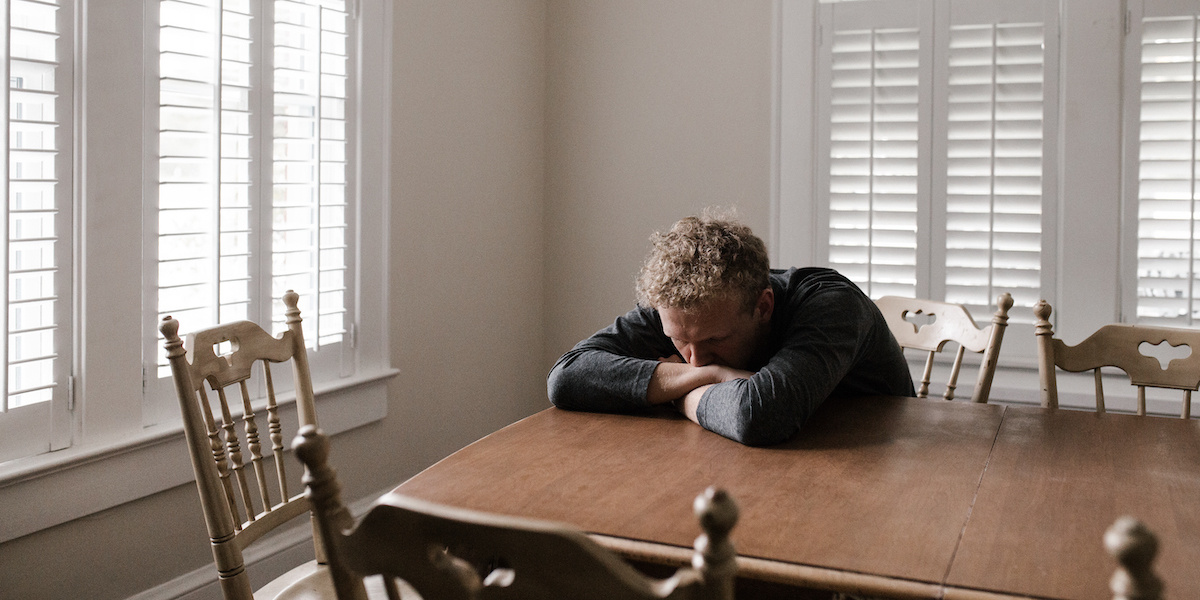The importance of World Mental Health Day was greater than ever this year. The changes and challenges that the ongoing Covid-19 pandemic has brought have had far-reaching effects and left many people struggling mentally.
Uncertainty and the restrictions placed on our work, travel and social lives with lockdown have taken their toll, with the number of adults experiencing depression almost doubling since the pandemic began.
In London, prior to the onset of Covid-19, people’s mental health was already poorer than in other parts of the country. Levels of happiness, life satisfaction and worth were lower and 42% of people in the capital were living with high levels of anxiety, compared to 38% of people in the rest of the country.
In banking, a Banking Standards Board study in 2019 revealed that 44% of banking employees felt under excessive pressure to perform in their work and a quarter felt their job was having a negative impact on their health and wellbeing.
For some of the 49% of all working adults who have been working from home since lockdown, it has made them want to do so more in the future. For others, it has meant unsuitable working environments, loneliness and isolation or a lack of personal space, and for some City workers, further additional pressure and stress due to feeling less productive.
Highlighting the critical nature of good mental health, for individuals and society, has never been more vital as increasing numbers of people struggle.
At the same time, properly treating and caring for those suffering from poor mental health has become more challenging. The need to reduce face-to-face contact has meant traditional support and treatments for those with mental health issues have been unavailable or less accessible at this time of increased demand.

NOW READ: City of London workers suffering worst mental health in UK
There are, however, dedicated organisations and resources available for those who need support. For example, the City Mental Health Alliance has developed resources to help businesses support the mental health of employees during the coronavirus outbreak, such as shared real-life experiences and practical actions of how individuals in their networks are responding to the pandemic.
A particularly valuable resource for Londoners is Good Thinking. The first of its kind in the world, the initiative offers free access to clinically proven digital mental health interventions to anyone who lives or works in London.
Funded by the London Councils, Public Health England and the NHS, since its launch in 2017 Good Thinking has reached over 250,000 Londoners experiencing anxiety, low-mood, stress and sleeping difficulties.
Good Thinking offers online mental health programmes My Cognition Pro, My Possible Self and our own Be Mindful free to Londoners.
Mental health apps offer ease of access and 24/7 availability, meaning they can be completed at your own pace, and they can reduce the stigma associated with accessing mental-health support. They can also be highly effective. For example, a scientific study into the effectiveness of our Be Mindful app showed course completers enjoying a 63% reduction in depression, a 40% reduction in stress and a 58% anxiety reduction.
Even in these challenging times, there are things we can do to help maintain or improve our own mental health. Here are our three top tips.
Meditate regularly
The benefits of meditating are multiple, including reduced stress, anxiety, and fatigue, better emotional wellbeing, increased attention span and improved sleep. Try some digital meditation aids. We’re just one of the providers that has made resources available for free during the pandemic – lifetime access to our library of online guided meditations at www.meditainment.com.
Engage in physical activity
Raising your heart rate above resting for a few minutes a day has huge improvements on your mental state, especially when working from home, as we no longer have the morning and evening commute which would often have served as our only form of exercise in the day. Just ten minutes of brisk walking can improve mental alertness, energy and boost our mood. Spending time amongst nature or in green spaces has also been shown to have many positive effects on our mental and physical wellbeing.
Explore digital mental health support
There are estimated to be over 10,000 mental health-related apps now available on the worldwide market , so there’s a wide choice of tools to help you improve your mental health. Naturally, there are differences in the levels of quality and effectiveness of apps so it’s important to find what works best for you personally. For Londoners, Good Thinking is a great place to start for free support.
For the latest headlines from the City of London and beyond, follow City Matters on Twitter, Instagram and LinkedIn.







